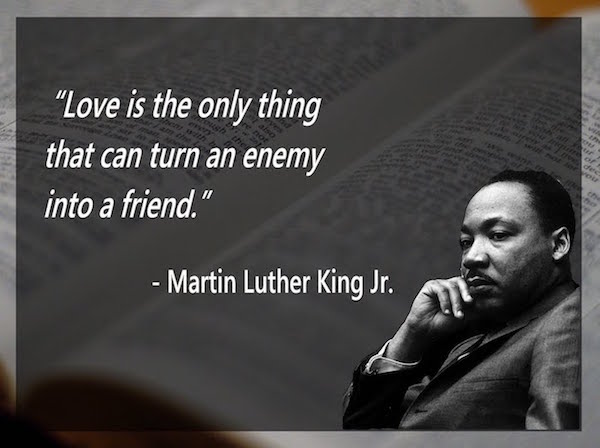During a recent seminar that I attended I witnessed a potentially explosive situation between two of the participants. One of the women in attendance wanted to make a comment about something the lecturer had just mentioned. The lecturer gave her permission to make her point but asked her to keep it brief.
Before the woman spoke, one of the men in attendance wanted to help her out by giving her some advice about the context of the subject matter since the woman had recently joined the lecture, however, instead of perceiving the man’s advice as helpful she took it as instructive and reacted in a strong, negative manner towards the man. The woman raised her voice and shouted, “I don’t need your advice!” Everyone in the room was silent to see how the man would react to such a harsh verbal lashing.
There was a brief pause and then the man responded in a very calm voice by apologizing to the woman and telling her that he was sorry and that he was only trying to help. The woman immediately calmed down and began to speak about what she wanted to share pertaining to the lecture.
A Soft Answer Turns Away Anger
The scenario which I just explained could have easily developed into a not so friendly scene. The original comments by the man were not harsh or authoritative. He was only trying to help by explaining to the woman issues which were already discussed. Her reaction was angry and accusatory and I personally probably would have responded in like manner toward her, however, he chose the path of humility and love, preferring another above himself. I was extremely impressed with this man’s reaction. It is a perfect example of the saying, “A soft answer turns away anger!” or as it is written in the book of Proverbs: “A gentle answer turns away wrath, But a harsh word stirs up anger.” (Prov. 15:1)
It is a challenge for each one of us to not react to someone who speaks harsh words against us. To exercise self-control and to refrain from becoming angry when someone provokes us with false or misunderstood accusations is a true test of faith and character. I must admit that this is a personal challenge for me at times. I enjoy debating and I enjoy being right. It is difficult for me to humble myself in the face of accusations that I perceive to be false and to act in a humble, godly manner in return. How should we react in the face of angry accusations directed against us? We see an excellent example of how to do this in this week’s Torah Portion through the life of Moses.
Watch the video teaching of this week’s Torah Portion
Confronting Moses – Sibling Rivalry
Towards the end of this week’s Torah Portion we read about a family matter between Moses and his siblings that became heated very quickly. Both Aaron and Miriam came against Moses with harsh words and a personal accusation:
Then Miriam and Aaron spoke against Moses because of the Cushite woman whom he had married (for he had married a Cushite woman); and they said, “Has the LORD indeed spoken only through Moses? Has He not spoken through us as well?” And the LORD heard it. – Num. 12:1-2
The issue of Moses’ wife seems to be a side issue as it is never mentioned again in this context. The greater accusation at hand is the claim that Moses is not the only prophet or spokesman of God. Miriam and Aaron were claiming that God also spoke through them.
The authority and position which God gave to Moses in the nation of Israel was being challenged by Moses’ core team, who were from his own family. Was Moses really called to lead this people? Or as Miriam and Aaron asked: “Has the LORD indeed spoken only through Moses?” It was a case of sibling rivalry with Miriam and Aaron wanting an equal share of the seat of Moses.
Moses was the youngest of the three siblings and the LORD had chosen him to lead the people (Ex. 3). Both Aaron and Miriam were working together with Moses in leading the people (Ex. 4:14-17. 15:20), however, it seems that jealousy arose and Miriam and Aaron were not content with Moses being the main leader. Miriam and Aaron wanted to claim their right to be God’s spokes people as well. Miriam and Aaron challenged Moses’s position and made jabs at his personal life to belittle him.
Moses had a choice to make with how he would respond to these accusations which his older brother and sister were making against him; he could react in anger and self-defense or he could remain silent. We have no record that Moses said anything at this time. The next thing we read about Moses in this context is in connection to his character: “Now the man Moses was very humble, more than any man who was on the face of the earth” (Num. 12:3). Moses was humble and as a result of his humility he was able to respond wisely at this time. As far as we know, Moses remained silent.

Remaining Silent When Accused
Keeping silent in the midst of personal accusations is probably one of the most difficult and challenging aspects to living a godly life. We as human beings naturally desire to defend ourselves and prove our innocence when being accused. Learning when to speak and when to keep silent is an art, a skill, and a discipline that each of us must work hard to perfect. This discipline is also a fruit of the Spirit that every believer in Yeshua must learn to walk in (Gal. 5:16-26).
In the book of Proverbs we are reminded again and again about the discipline of controlling one’s temper and words: “He who is slow to anger has great understanding, But he who is quick-tempered exalts folly” (Prov. 14:29). The book of Proverbs also reminds us to be careful with the words which we speak: “The one who guards his mouth preserves his life; The one who opens wide his lips comes to ruin” (Prov. 13:3). We can deceive ourselves by thinking that the more that we speak the more clear the situation will become, when in reality, the opposite is generally true. Through controlling our anger and guarding the words of our mouth there is understanding and there is life!

God Hears
Moses exercised great control over his anger in this situation with his brother and sister and, as far as we know, he didn’t open his mouth to defend himself. Immediately after the accusations of Miriam and Aaron we read the following words, “וישמע יהוה” – “va’yishmah Adonai” – “and the LORD heard it.” God had heard the accusations which Miriam and Aaron were making against Moses and God was about to act.
If we really believe in God, we must also believe that God sees and hears everything. This does not mean that we become passive and never respond or react, however, we need to do our best to respond in a manner which honors God and also gives God an opportunity to do His job. The LORD is an Avenger, “Vengeance is Mine” (Deut. 32:35), and He is much better at defending His children than anyone else on earth. We need to leave revenge to the LORD and give Him an opportunity to act on our behalf when others falsely accuse us and rise up against us. Moses was silent and God acted.
Letting God be God
In this particular situation God intervened immediately. The LORD took special note of the accusations spoken against Moses and the following scenario unfolded:
Suddenly the LORD said to Moses and Aaron and to Miriam, “You three come out to the tent of meeting.” So the three of them came out. Then the LORD came down in a pillar of cloud and stood at the doorway of the tent, and He called Aaron and Miriam. When they had both come forward, He said, “Hear now My words: If there is a prophet among you, I, the LORD, shall make Myself known to him in a vision. I shall speak with him in a dream. Not so, with My servant Moses, he is faithful in all My household; with him I speak mouth to mouth, even openly, and not in dark sayings, and he beholds the form of the LORD. Why then were you not afraid to speak against My servant, against Moses?” – Num. 12:4-8
Every situation in life is unique and we need to be sensitive to the LORD and His will in each trial that we face; understanding when to speak and when to remain silent. In this situation Moses was silent and the LORD appeared. The LORD Himself deemed it necessary to personally intervene in this particular situation and, as we read in these verses, the LORD came down to confront Miriam and Aaron in their accusations.
When Aaron and Miriam stood before the LORD, He spoke to them about prophets and specifically distinguished Moses from the other prophets. In verse 6 we read the sentence: “If there is a prophet among you, I, the LORD, shall make Myself known to him in a vision. I shall speak with him in a dream.”
The phrase “If there is a prophet among you” in the original Hebrew is “אם יהיה נביאכם” – “im eiyeh nevi’eychem” which is literally translated as “if there will be your prophets.” The LORD used the second person plural form of “your prophets” in this phrase and I believe He was making a point here. The LORD was distinguishing between the prophets which Miriam and Aaron were referring to and Moses. Although Miriam and Aaron were also considered prophets (Ex. 7:1. 15:20), Moses was a different sort of prophet.
Moses the Servant of the LORD
Moses was unique amongst the prophets. The LORD declared about Moses: “he is faithful in all My household” (Num. 12:7). The LORD called Moses faithful and included him in his personal household. I believe the LORD was making a distinction between what Miriam and Aaron were referring to as prophets and what the LORD considered as His own. The LORD then reminded Miriam and Aaron that He speaks to other prophets in dreams and visions but with Moses He speaks “mouth to mouth,” meaning that the LORD and Moses spoke to each other as two friends talking with one another.
The last word that the LORD spoke to Miriam and Aaron was in the form of a question: “Why then were you not afraid to speak against My servant, against Moses?” The LORD again speaks of Moses in a personal way, calling him “עבדי” – “avdi” – “My servant.” The LORD personally testified that Moses was His unique prophet and destroyed the accusation that Miriam and Aaron had brought forth.
The Fear of the LORD
The LORD reminded Aaron and Miriam of things they already knew. They saw the many miracles that God performed through their brother Moses, including bringing the whole nation of Israelites out of Egypt. Beyond that, they saw the evidence of God’s presence on the face of Moses each time he came from meeting with the LORD:
It came about when Moses was coming down from Mount Sinai (and the two tablets of the testimony were in Moses’ hand as he was coming down from the mountain), that Moses did not know that the skin of his face shone because of his speaking with Him. So when Aaron and all the sons of Israel saw Moses, behold, the skin of his face shone, and they were afraid to come near him. – Ex. 34:29-35
Moses was clearly God’s man on earth at that time. Moses was set apart unto God and had a unique relationship with God. Aaron and Miriam knew this and they should have had a proper fear and respect for their brother Moses. They failed in this regard and instead brought false accusations against Moses.
The Anger of the LORD
When the LORD finished rebuking Aaron and Miriam we read that the anger of the LORD burned against them:
So the anger of the LORD burned against them and He departed. But when the cloud had withdrawn from over the tent, behold, Miriam was leprous, as white as snow. As Aaron turned toward Miriam, behold, she was leprous. Then Aaron said to Moses, “Oh, my lord, I beg you, do not account this sin to us, in which we have acted foolishly and in which we have sinned. Oh, do not let her be like one dead, whose flesh is half eaten away when he comes from his mother’s womb!” – Num. 12:9-12
We don’t know exactly why only Miriam was struck with leprosy and not Aaron as well. It is possible that Miriam was the main instigator and therefore she was punished, however, it is not clear from the text. In any case, we know that as Aaron looked on his sister with leprosy he surely understood the message that God was sending to both of them.
Pray for Those Who Persecute You
Moses had a choice to make and he chose the path of mercy, love, and forgiveness. Moses heeded his brother Aaron’s request and cried out to the LORD on behalf of his sister, whom the LORD had struck with leprosy: “Moses cried out to the LORD, saying, “O God, heal her, I pray!” (Num. 12:13) The recorded plea of Moses on behalf of his sister’s leprosy are the only words of Moses in this whole chapter.
Miriam had falsely accused Moses and she had personally attacked Moses, however, God had defended Moses. Moses was completely vindicated of all accusations and Miriam and Aaron were proven wrong. Moses could have naturally thought to himself that Miriam had only received her just punishment because of her actions. He could have ignored her and let her suffer in her punishment from God, however, Moses acted in love and forgiveness.

Fulfilling the Law of Love
It is not easy to pray for those who accuse us and say false things against us, however, this is exactly what Yeshua has commanded us to do:
You have heard that it was said, ‘You shall love your neighbor and hate your enemy.’ But I say to you, love your enemies and pray for those who persecute you, so that you may be sons of your Father who is in heaven; for He causes His sun to rise on the evil and the good, and sends rain on the righteous and the unrighteous. – Matt. 5:43-45
We need to remember that we are all children of God and created in His image. In light of this reality we should love our enemies, who are also created in God’s image, and pray for those who persecute us so that we may imitate God who forgives us of our sins.
Moses so perfectly illustrated for us what it means to “pray for those who persecute you.” Moses demonstrated his humility by not bearing a grudge, but instead, praying to God on behalf of his sister who persecuted him. In fact, the Bible records “ויצעק משה” – “va’yitzak Moshe” – “And Moses cried out.” Moses didn’t just say a half-hearted, “Dear LORD, Please remember my sister Miriam and make her better, amen” type of prayer. Moses cried out to the LORD on her behalf. Moses sincerely prayed for the one who persecuted him.
Timeout for Seven Days
The LORD replied to the cry of Moses on behalf of his sister:
But the LORD said to Moses, “If her father had but spit in her face, would she not bear her shame for seven days? Let her be shut up for seven days outside the camp, and afterward she may be received again.” – Num. 12:14
The LORD’s reply to Moses was a carefully orchestrated reply. By telling Moses that Miriam may be received after seven days, He was assuring Moses that she will be healed, for she can only re-enter the camp when she is cleansed from the leprosy. At the same time, however, the LORD made it clear that this punishment needs to have some time to accomplish what God intended to teach Miriam and Aaron. Miriam was to wait outside the camp for seven days.
There is also an interesting word play in the manner which the LORD answered Moses which corresponds to the words which Aaron and Miriam used in accusing Moses: “Has the LORD indeed spoken only through Moses? (Num. 12:2) In Hebrew this sentence reads: “הרק אך במשה דיבר יהוה” – “ha’rak ak be’Moshe diber Adonai?”
The word “only” in this sentence is the Hebrew word “רק” – “rak.” When the LORD responded to Moses’ plea for Miriam’s healing He began with the words “ואביה ירק ירק בפניה” – “ve’aviah yarok yarak be’fane’ah” – “If her father had spit in her face.” The word for “spit” – “ירק” – “yarak” is used twice in the Hebrew for emphasis and includes the same two letters from the word “רק” – “rak” – “only.” There is no connection in the meaning of these two words, however, they are pronounced the same where the letters correpond. I believe God was answering the accusation of Miriam and Aaron of the uniqueness of Moses “רק” – “rak” – “only” in the punishment of Miriam “ירק” – “yarak” – “spit.”
Judge and be Judged
There is a practical lesson in the accusation of Aaron and Miriam and the punishment which Miriam received. Just as we see a connection between the two Hebrew words above, we are reminded to be careful in how we judge others:
Do not judge so that you will not be judged. For in the way you judge, you will be judged; and by your standard of measure, it will be measured to you. – Matt. 7:1-2
These words of Yeshua speak for themselves. We must be extremely careful in how we judge others because we will be judged to the same degree.

Love & Pray
There are many practical relational and spiritual lessons to be learned in this week’s Torah Portion study in relation to Moses and his siblings. I believe, however, one of the key principles of staying on the right path with God is in living out the exhortation given to us from Yeshua: “…love your enemies and pray for those who persecute you” (Matt. 5:44), which was displayed in the actions and words of Moses.
We all have enemies and there will always be those who persecute us in one way or another, especially those who are closest to us. If we could learn to apply this principle of loving our enemies and praying for those who persecute us, we would certainly shine much brighter in this world for the glory of our Father in heaven.
Shabbat Shalom!
If you enjoyed reading this article, share it today with friends! We also invite you to sign up for our weekly Torah Portion commentary on the sidebar to the right.
Help keep our weekly commentaries free and available to all. Click here to donate today:
Torah Portion: Num. 8:1 – Num. 12:16
Hafatara: Zechariah 2:10 – Zechariah 4:7
Return to Torah Portion Homepage
Copyright Jewels of Judaism. All rights reserved 2016




Hi Daniel,
thanks for the teaching on this difficult issue.
I remember how difficult it was when I first prayed for my x-boss/partner (I think I told you about her). It was very difficult time to me, because she accused and blamed me for not doing my job well and that I was lazy and not faithful to God’s calling, etc. I really wanted to quit the job and let her realize how much work I was doing for the ministry. But then the Holy Spirit reminded me that He had called me to that ministry and I worked for Him not for her. So I stayed for another 5 years and worked with her until I left for Bible college.
During these 5 years I learned how to prayed for her. At the beginning it was very difficult, full of tears. But from the time I started to pray for her, my perceptive changed and God really helped me to understand her deeper. But still, it wasn’t easy to ‘love’ her.
One day, when I was traveling in Hong Kong, I met a pastor from the US. We hadn’t met before or after, I only talked with him for few minutes and he prayed for me. I was tearing when he was praying for me for every single word that he prayed was related to the doubt in my heart. After the prayer, he said to me that he saw a smiling face of the Lord and He is pleased with what I’ve done for Him. Since then I knew that I don’t need to care about how my boss looks at me. For my Lord knows my heart. And after that I felt easier to love her. When I left that ministry, she became one of my close friends who really understood me.
It’s not easy to pray for your enemies but really worth it.
Hi Nancy,
Thanks for sharing your story. That was a long time to be in a difficult situation and constantly praying for someone who is persecuting you in a way. It is a strong testimony and I’m sure that it has changed you in many ways and made you stronger spiritually.
God bless you and continue to use you!
Daniel
Thanks for your blessing, Daniel. Indeed, after leaving this message here, I realized that how much God has changed/transformed me through this situation. And now I became warmer, softer, and more compassionate, less self-centered, according to some friends’ comments. I still have more to learn but have more confidence to face difficulties.
Nancy
By the way, thanks for tidying up my English. Appreciate it. 🙂
You’re welcome. I’m an English teacher, it comes naturally!
Daniel,
Do you think that because of the gift of Yeshua we can enter into that same “mouth to mouth” friendship that Moses had with God? Do you think today He distinguishes between Prophets and friends like He did then with Moses?
I’m reminded of the verses in John 6:56-57 where Yeshua talks about us being in Him….
Hi Suzanne,
Good question. I think that the Holy Spirit is certainly given and available to all believers in Yeshua today (1 Cor. 12:7), however, we will not all operate in the same gifting (1 Cor. 12:4-6). How God chooses to gift us and communicate to us is dependent on Him and not us. We can seek Him and ask Him to speak to us, but how he chooses to speak to us is up to Him. I don’t think there is a rule to follow in regards to how God communicates to us. Each of us needs to seek the Lord and walk with Him in Spirit and truth and recognize that He has different plans for each one of us, just like He did for Peter and John (John 21:18-23). I truly believe that the relationship between Moses and God was unique for that time.
I hope this helps,
Daniel